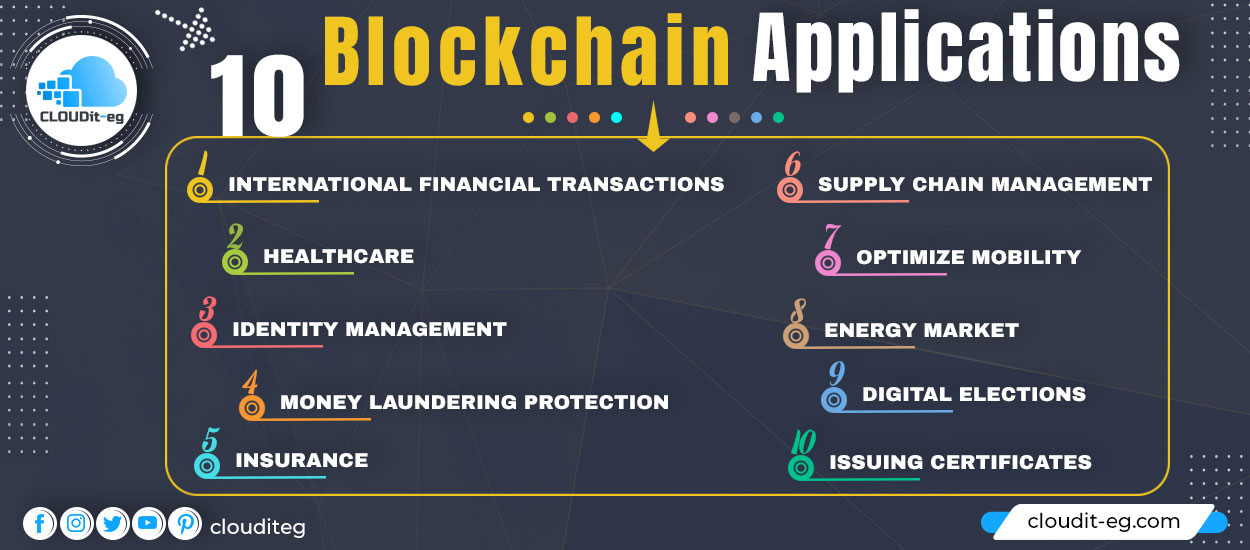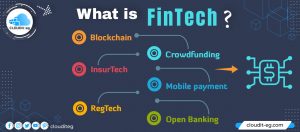The year 2017 helped blockchain technology to become better known because cryptocurrencies particularly convinced investors with high returns. The blockchain is the technology behind it, the potential of which is now also convincing in the business environment. More and more companies are starting to develop blockchain-based platforms and systems because the technology offers numerous advantages and can be implemented in numerous applications. In the following, we give an overview of what can blockchain technology be used for? and the 10 Blockchain Applications and Use Cases.
Reasons for using the blockchain
Blockchain technology is a distributed, secure database and is also called Distributed Ledger Technology (DLT). It has the potential to sustainably change numerous business models.
The technology has four main advantages:
- Speed and security: All data that is stored in a blockchain is immediately encrypted and distributed to the entire network. With this approach, large amounts of data can be distributed to users in a very short time. In addition, the stored data is protected from manipulation by the decentralized distribution.
- Data integrity: The integrity of the available data plays a key role in a blockchain. For this reason, the use of the hash function ensures a particularly high level of security. The consensus verifies the data and protects it from manipulation.
- Reliability of the network: A blockchain is organized in a decentralized manner so that a total failure of the entire network can be almost ruled out. Every node in the network has all the data, so recovery is particularly easy.
- Transparency: Every transaction in the blockchain network is saved in one of the blocks so that subsequent analysis is always possible. This enables contractual partners to be identified and the effects of transactions to be reproduced.
Blockchain Technology Benefits
Possible Blockchain Applications examples in practice
The advantages mentioned make it clear that a blockchain can be used in many business models. The technology can help to overcome existing challenges and reduce costs within individual processes.
1. Blockchain technology in the context of international financial transactions
One of the best-known examples of the use of a blockchain is financial transactions. Above all, the cryptocurrencies mentioned at the beginning illustrate how technology can be used in the financial world. In the course of a blockchain, individual transactions are verified and distributed to the so-called nodes. This results in a high level of data consistency and a particularly high level of transparency. These properties are the basis for banking transactions. Encryption – This is done using a hash function – that secures the data and protects it from manipulation.
This principle opens up interesting application possibilities for international payments. Since verification takes place within the network, intermediaries can be excluded and transaction costs reduced. The lack of intermediaries also ensures a higher transaction speed.
2. The use of a blockchain in healthcare
In the healthcare sector, too, it has been shown that the blockchain can certainly offer advantages. A blockchain can be configured in such a way that only selected users to have access to the stored data. Nevertheless, the data can be stored in the distributed network so that the sensitive data can be stored here. In particular, personal documents such as patient files, medical reports, and the course of illness can be stored on a blockchain. Access to this data is only given to selected users who have previously been activated by the owner of the data.
3. Blockchains for identity management
Verifying a person’s identity is a challenge in selected business areas. With the help of blockchain technology, however, people’s identities can be identified more securely and more quickly than before. This is based on extensive databases that enable identification and verification. Above all, existing identification documents – driver’s licenses, passports, and ID cards – could thus be digitally implemented securely. A manipulation would also be almost impossible. Loss of data would also be prevented since the data is stored decentrally.
4. Avoiding money laundering
To date, money laundering is a major problem in the economy. The blockchain can be used to eliminate this problem by transparently storing all concluded contracts on a blockchain. Through recordings, the individual transactions can also be assigned to the respective parties involved, thus avoiding money laundering.
5. Processing of insurance via the blockchain
Modern blockchains in particular offer the possibility of developing smart contracts. These are intelligent scripts that automatically initiate transactions on the blockchain. This option offers great added value for insurance companies, as the processing of claims or insurance benefits can thus be presented in an automated and secure manner. it can be recognized that a single customer wants to assert multiple concerns for an identical claim for damages.
6. Revolution in supply chain management
The supply chain can be revolutionized through the use of the blockchain. By generating simpler contracts and continuously tracking the corresponding goods, advantages can be generated. The supply chain of food from the place of origin to the final supermarket would be documented in a completely transparent manner. This is precisely where the advantage of distributed data processing such as that offered by the blockchain becomes apparent. Extensive search queries in particular can cause delays and high administrative costs. A blockchain can compensate for these disadvantages.
7. Optimize mobility with the help of the blockchain
The option of distributing access rights also plays an important role in the context of mobility. In addition, the technology can document ownership of an item and is ideal for use in this area. With the help of distributed ledger technology, it would be possible to use a vehicle when required and pay directly for the service used. In the course of electrification, too, problems due to the new form of mobility can be solved with the help of this technology. B. secure billing procedures can be implemented.
8. Revolution in the energy market
The energy market is also constantly changing. Blockchain technology is preparing to increase the transparency of this market through the traceability of transactions. For example, the billing of private solar systems can be optimized in this way. Such positive regulation can accelerate the announced energy transition. In the course of electromobility, billing for e-filling stations can also be implemented in this way and the actual payment process can be secured.
9. Digital elections
It also shows that blockchain technology could also be used in the course of online elections. The basic system would be seen as a neutral space. The voters could vote in the elections without fear of manipulation. Each voter can thus also track their own vote and check whether it was correctly taken into account. Forgery or modification of the voice is also impossible.
10. Administration and issuing of certificates
Educational qualifications such as references or certificates represent a framework condition in professional life and some people rely on forgeries in order to receive a certificate from a renowned specialist institution. By using the blockchain, institutes, universities, and technical colleges are given the opportunity to produce non-forged degrees and certificates. These are secured with a personal key and are internationally recognized. This means that the official certification and the sending of the original documents would be omitted.
Conclusion
Finally, we can conclude that many experts see enormous future potential in technology, so developments in the coming years should be particularly exciting.




